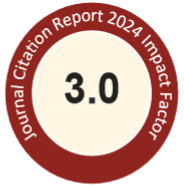Abstract
Phenolic compounds in a series of old oolong teas prepared by baking annually were monitored and compared. The results showed that the relative content of gallic acid over 5-galloylquinic acid was subsequently elevated during this preparatory process. To reveal the effect was mainly resulted from baking or aging, two sets of oolong teas were collected and examined; one set was generated from fresh oolong tea via continually daily baking and the other set was composed of aged oolong teas with no or light baking in the storage period. The relative content of gallic acid over 5-galloylquinic acid was observed to be subsequently elevated when oolong tea was continually baked at 90, 100, 110, and 120 °C for 8 h day after day. In contrast, the relative contents of gallic acid over 5-galloylquinic acid in aged oolong teas with no or light baking were found to be similar to or slightly higher than that in fresh oolong tea. The results suggest that the relative content of gallic acid over 5-galloylquinic acid seems to be a suitable index for the baking intensity of oolong tea in different preparations. © 2017
ScienceDirect Link
Recommended Citation
Wang, M.M.-C.; Yeh, Y.; Shih, Y.-E.; and Tzen, J.T.-C.
(2018)
"Relative content of gallic acid over 5-galloylquinic acid as an index for the baking intensity of oolong teas,"
Journal of Food and Drug Analysis: Vol. 26
:
Iss.
2
, Article 43.
Available at: https://doi.org/10.1016/j.jfda.2017.07.015
Creative Commons License

This work is licensed under a Creative Commons Attribution-Noncommercial-No Derivative Works 4.0 License.
Fulltext URL
https://www.sciencedirect.com/science/article/pii/S1021949817301527/pdfft?md5=dfd06a7c461566187bd49696537562b7&pid=1-s2.0-S1021949817301527-main.pdf
Included in
Food Science Commons, Medicinal Chemistry and Pharmaceutics Commons, Pharmacology Commons, Toxicology Commons


Abstract Image